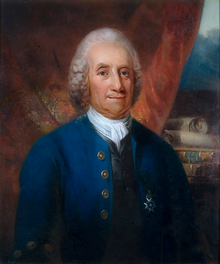There’s a piece by Mark Oppenheimer in today’s New York Times about the transformation of Blondie’s (ah, those were the days) bassist into a popular writer about religion. Harmless enough stuff, but this passage caught my eye:
Mr. Lachman moved to London and began to write about mysticism and the occult. He has since written books about Carl Jung, the educator Rudolf Steiner, and now Swedenborg: all figures with powerfully rational minds who nevertheless speculated in the irrational. They might be seen as the thinking person’s mystics.
Swedenborg, for example, could be easily dismissed as a crank. Many people today would be dubious of the story, which Swedenborg promoted, that he had flabbergasted the queen of Sweden by relaying a message from her deceased brother. They would be even more skeptical of Swedenborg’s claims that he could visit souls in heaven. There, he said, he could see angels performing domestic chores, or ask about their sex lives.
But Swedenborg also had a rigorous scientific mind. He predicted the advent of airplanes and cars, he discovered the central canal of the spinal cord, and he recognized the existence of neurons. His keen curiosity about the relationship between mind and body fueled his interest in dreams — he went through a period of vivid, ecstatic dreams — and his interpretations presaged the work of Freud and Jung.
Right now, Mr. Lachman, who is single but has two sons, does not follow the spiritual practices of any guru, teacher or historical figure. “I consider all the reading and research and contemplating a spiritual practice, not to sound pompous.”
It does not sound pompous. The idea that research can be a spiritual discipline — and spirituality the subject of rigorous research — has been a commonplace among theologians at least since Thomas Aquinas…
Fair enough, but I suspect that that “rigorous research” should have plenty of room for a psychiatric explanation of what Swedenborg ‘saw’.

